
Justice Department Turns to Psychological Science to Improve Eyewitness Testimony
The US Department of Justice (DOJ) is tapping into psychological science to develop new guidelines for eyewitness identification procedures. Visit Page
Associate professor and researcher Ryan Fitzgerald discusses his research into eyewitness identification, mentoring students, and lessons he's learned along the way. Visit Page
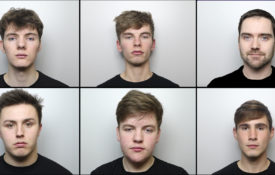
In the first webinar of APS’s Science for Society series on September 20, 2023, scientists and advocates shared their expertise and perspectives on the relationship between gun violence and anxiety. Visit Page

Psychological scientists uncover the factors that can muddle criminal justice. Visit Page
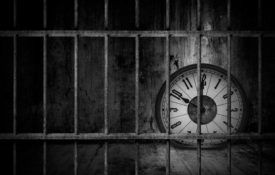
Two researchers share their research related to criminal justice. Visit Page
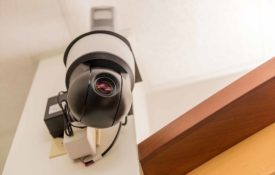
Most people agree that the punishment should fit the crime, but procedural delays outside of defendants’ control may cause judges, case review boards, and other third parties to support more severe sentences. Visit Page

A psychological researcher uncovers how judges and juries evaluate expert scientific testimony. Visit Page

Podcast featuring Carl Hart, a neuroscientist at Columbia University who has studied the behavioral and neuropharmacological effects of psychoactive drugs in humans. His lab attempts to understand factors that mediate drug use, to develop effective treatments, and to translate that knowledge into more humane drug policies. Visit Page
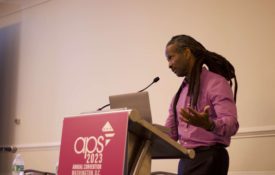
Diversity trainings as currently practiced are unlikely to change police behavior, suggests an analysis of a day-long training session designed to increase U.S. police officers’ knowledge of bias and use of evidence-based strategies to mitigate bias. Visit Page

Patients are often resistant to the use of artificial intelligence in healthcare. But AI-assisted care could usher in a new era of personalized medicine. Visit Page

APS Fellow and James McKeen Cattell Award recipient Gail S. Goodman discusses her NIJ-funded research project, "Long-Term Eyewitness Memory in Children Exposed to Violence." Visit Page

Research exploring factors that contribute to wrongful convictions reveals a path for addressing the serious consequences of wrongful incarceration. Visit Page

In this special episode of Under the Cortex, the entire APS communications team shares its top highlights from the September/October 2021 Issue of the Observer. Visit Page
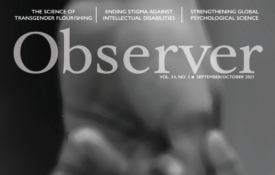
On April 27, Melissa Lucio is scheduled to be executed in Texas for the alleged murder of her 2-year-old daughter. APS James McKeen Cattell Fellow Saul Kassin explains how the psychological science on false confessions relates to this life-or-death case. Visit Page

Pierce Ekstrom discusses new research on the relationship between countywide attitudes toward race and local policing. Visit Page

Experts share insights into the factors behind racial bias during police encounters. Visit Page
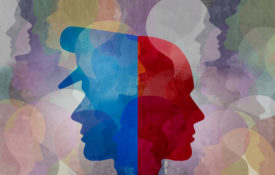
Neil Lewis Jr. discusses how despite living in the same country, people end up having wildly different life experiences. Visit Page
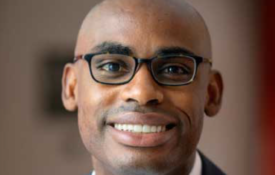
Eyewitness memory is susceptible to distortions that can lead a witness to mistakenly identify an innocent suspect as a perpetrator. Teach students about the challenges inherent in identifying a face from a video image. Visit Page
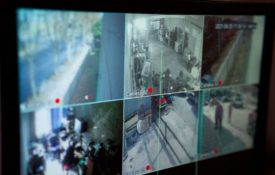
Julian Jara-Ettinger, Emily Fyfe, and Calvin Lai discuss reading and sharing minds, the development of learning and its practical applications, and the importance of studying the gap between what people value and what people do. Visit Page

Kitty Genovese's murder caught the attention of the public and psychological scientists alike, but new research indicates we’ve had the story all wrong for the last 50 years. Visit Page

Repeated incidences of racial discrimination and violence have far reaching consequences for mental health. Visit Page
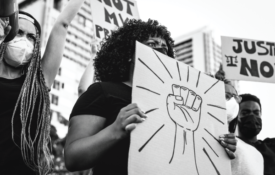
A comprehensive report examines the psychological research on the factors that drive public trust and law-related behavior. Visit Page

Recent highlights from APS journals articles. Visit Page

Arielle Baskin-Sommers explores the cognitive-affective processes associated with disinhibition and community violence. Visit Page

In addressing the United States' entrenched racism, Shinobu Kitayama reflects on the social institutions that undergird it and the pioneering researcher who fought for the cause of documenting and understanding Black lives. Visit Page

Public trust in the police has remained flat for decades, a problem that has become especially salient due to recent events. Visit Page

A review of some research on police and stereotyping, police officers’ aggressiveness, and the impact of psychological science on policing in the United States. Visit Page
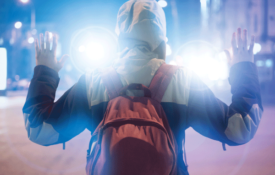
First PSPI Live explores 2021 case for testing a witness’s memory of a suspect only once. Visit Page

Encouraging young people returning from juvenile detention to share their goals with an educator could help them stay in school and out of the criminal justice system. Visit Page

In the latest edition of PSPI, researchers look at the problems with eyewitness misidentifications in the courtroom and explain why prosecutors and law enforcement should test a witness’s memory of a suspect only once. Visit Page

Recollections of our past whereabouts are often imperfect. Visit Page

This Griffith University researcher works with law enforcement and child protection officials around the world to improve forensic interviews by bringing practitioners' observations back to the lab. Visit Page
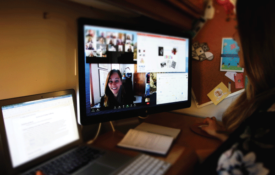
First PSPI Live explores a 2021 case for testing a witness’s memory of a suspect only once. Visit Page

The same experimental standards that apply to scientific research could also be applied to police lineups to improve the accuracy of eyewitness identifications, says APS James McKeen Cattell Fellow Gary L. Wells. Visit Page

A new report challenges the perception that eyewitness memory is inherently fallible, finding that eyewitness confidence can indicate the accuracy of identifications made under “pristine” conditions. Visit Page
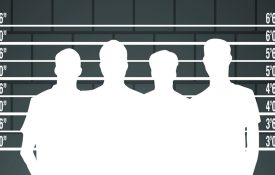
Narrative interventions using storytelling may provide impactful solutions for shifting behavioral intentions, beliefs, and attitudes around extremist violence. Visit Page

One of the first steps to comprehending why a witness’s memory should be tested only once is understanding that memory is malleable, especially following recognition tests, such as lineup procedures. Visit Page

A sample of articles on innocence, false confessions, and wrongful convictions, the psychological study of art and aesthetics, new ways of reducing prejudice, and a psychometric model of emotions. Visit Page

The challenges associated with addressing persistent inequality among marginalized communities have never been more apparent. Psychological science explores the roots, the risks, and the roads to meaningful behavioral change. Visit Page

Perceptions of gender and race combine into unique stereotypes and complex patterns of discrimination. Visit Page

We celebrate Black History Month 2022 with a collection of flash talks from the 2021 Virtual Convention that discuss race, anti-racist behaviors, and more. Visit Page

A study involving Dutch Police Academy recruits suggests that aggressive individuals may be more sensitive to the effects of testosterone when faced with emotionally charged situations. Visit Page

The Lab @ DC, a research team within the Washington, DC city government, has just released the results of a two-year-long study investigating the effects of police body-worn cameras on policing in DC. Visit Page

A new report brings psychological science to bear on policing, providing an in-depth analysis of the factors that drive public trust and law-related behavior. Visit Page

Instructors should be prepared to listen for —and challenge — belief perseverance, and can use this myth to highlight how automatic and difficult belief perseverance can be to overcome. Visit Page
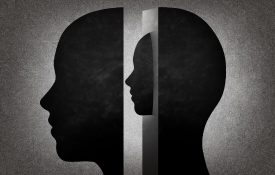
In the past several years, incidents between community members and the police have highlighted what many have been feeling for a long time–a lack of a sense of police legitimacy. Visit Page

Children often show remarkable resilience, but survey data shows that repeated exposure to adversity in childhood can have a significant impacts on health and well-being later in life. Visit Page

An analysis of audio recordings from 380 traffic stops showed distinctive differences in the language that police used when speaking to White drivers compared to African American drivers. Visit Page

A research report explains how eyewitnesses’ memories can become distorted after speaking with co-witnesses. Visit Page

Scientists studying the human limitations of face perception have also uncovered a population of people with a remarkable knack for placing a face — a skill now being tapped by police in London. Visit Page

Psychology researchers present cutting-edge science that may help us adopt newer, healthier, or safer behaviors. Visit Page
